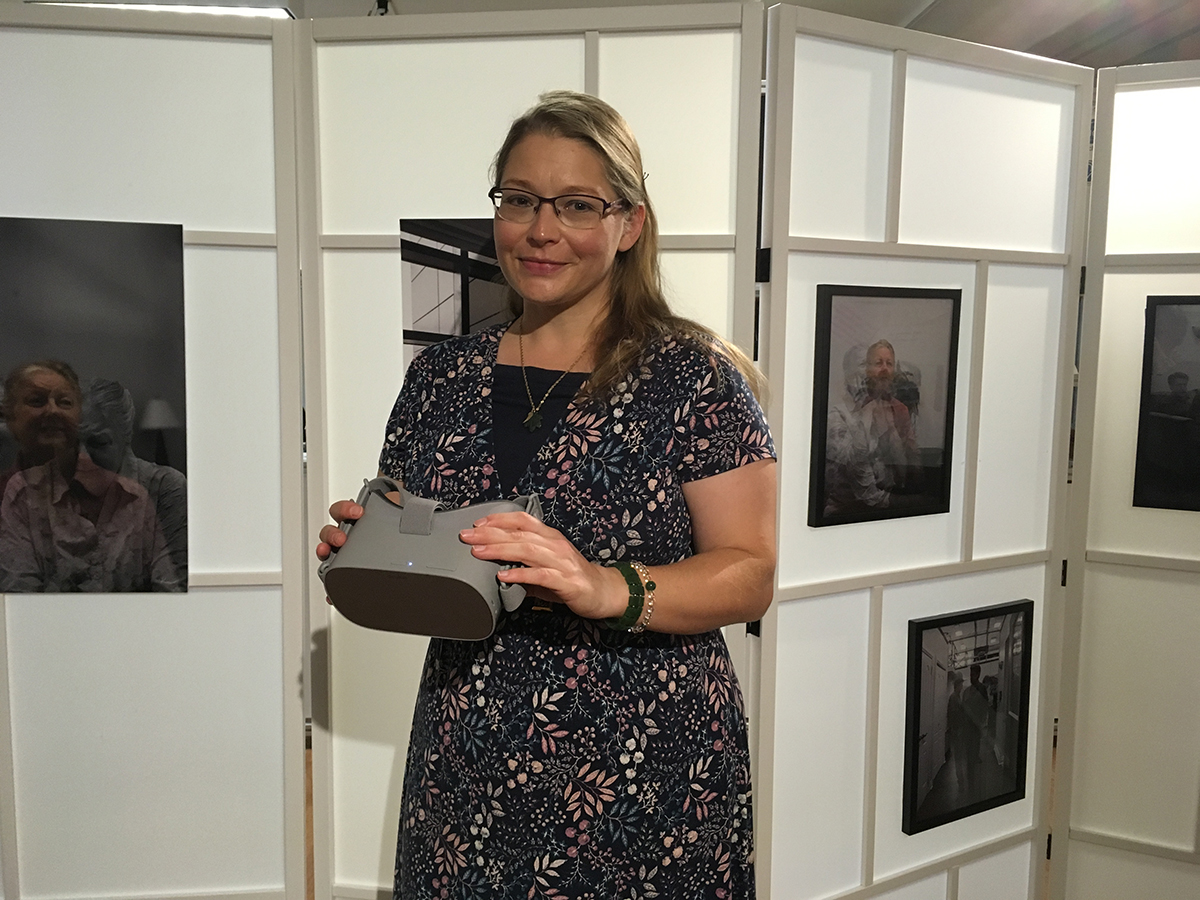Dementia exhibit provides experiential education

Dr. Kristine Newman aims to raise awareness and shatter stereotypes about dementia by communicating her work through art. She poses here with a pair of goggles used to show visitors the 360° videos.
A new multimedia exhibit aims to raise awareness about what it's like to live with dementia through art. The exhibit, called EMBODY – Experiencing Dementia Through New Media, uses paintings, photographs, graphic design, Snapchat lenses and 360° videos to give visitors insight into the lives of people with dementia through immersive experiences. Researchers hope that the exhibit will help attendees empathize with people who have dementia.
"For this study, it's really about understanding the person with dementia's experience and having the attendee actually having learned something about dementia at the same time," said Dr. Kristine Newman, a professor at Ryerson's Daphne Cockwell School of Nursing and one of the project's principal investigators.
Dr. Newman added that she wanted to present the information in an interactive and creative way so that visitors could see beyond stereotypes about dementia. The exhibit includes two 360° videos that put the viewer in the shoes of someone with dementia. The video follows that person as they navigate an unfamiliar environment and people who they do not recognize.
Other elements of the exhibit include photographs that juxtapose the outward appearance of people with dementia with their hidden inner feelings, interpretive traditional and digital art and an audiovisual clip that speaks to the experience of caregivers. Viewers may access this clip via Snapchat.
EMBODY is the third phase of a multi-year study in collaboration with the Toronto Rehab Institute. The study focuses on predicting episodes of agitation and other behavioural and psychological symptoms of dementia, while the exhibit interprets the findings of the earlier two phases, which focused on observing patients with dementia. The first two phases were funded by the Alzheimer's Society of Canada, with the exhibit supported by the Ryerson Creative Fund.
Visitors to the exhibit may also participate in the current phase of the study, which examines the effectiveness of the artwork in communicating knowledge about the research. Once guests have completed their tour, they are invited to respond to the exhibit in writing or by contributing artwork. They may also fill out a brief survey and sign up to attend a focus group.
The exhibit is free and open to the public. It is located in the main foyer of the RBC iDAPT Innovations Gallery at the Toronto Rehabilitation Institute (550 University Avenue) and it is open between 10:00 until 17:00 every day until Friday, November 9, 2018.
Check out some of the gallery highlights here: